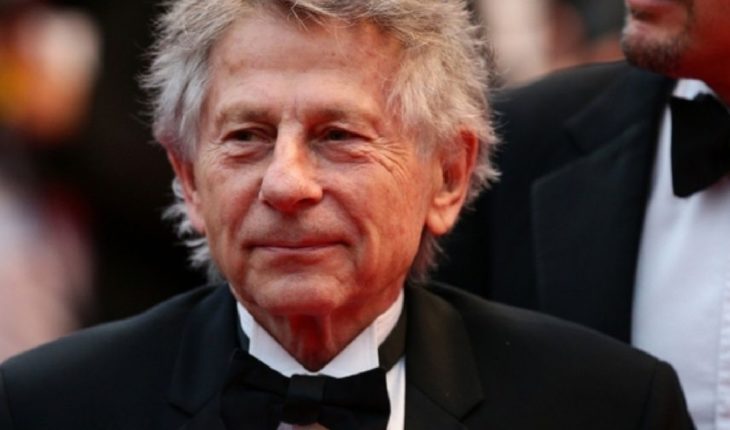With Venice, we can say that officially kick-off the season of film festivals (sorry, Cannes), that follow-up of movie games where many of the strong prize winners begin to be profiled, and some caps that we always Surprised. It is also a great stained glass window for the stars not so used to these areas, and some other controversy as to add some spices to the whole. The 76th edition of the Venice International Film Festival is not without controversy, especially when we take a quick look at the list of films, inside and outside the competition. At the outset, the festival’s artistic director, Alberto Barbera, has already clashed with several European groups due to the inclusion of three Netflix productions. The streaming platform doesn’t care what they’re going to say and continues to add quality titles like Steven Soderbergh’s “The Laundromat,” Noah Baumbach’s “Marriage Story” and “The King,” directed by David Michod and starring Timothée Chalamet.
Polanski’s last film snuck into the official competition
Although the main debate should come on the other hand: while female filmmakers are still ignored in most cases – this year only two women-led films (out of a total of 21) managed to get into the programming grid, twice as many the last edition-, among the competing titles is “An Officer and a Spy” (J’Accuse), Roman Polanski’s latest drama, an unwelcome figure in the #MeeToo era (and it should be clarified that earlier). Unwelcome by the public, as European festivals have no modesty when it comes to celebrating these super cancelled individuals (did anyone say Woody Allen?). At the same time that Venice does not hesitate to separate “the artist’s work”, Polanski continues to evade his legal responsibility on American soil where he already accumulates several allegations of sexual abuse, including that of Samantha Geimer (Samantha Gailey), aged just 13. In 1978, the Polish director was accused of sexually abusing a minor, drug use, perversion and sodomy, among other things. He pleaded guilty to some minor charges and managed to reduce the sentence, serving only 90 days in prison (yes, we too find it outrageous). After 42 days he was released so that he can continue filming his next project. Thus, the director traveled to London and from there to France where he was a national, and there he was left avoiding extradition to the United States. Since then, more accusations have appeared against him, but the justice of the European countries that have given him asylum does not seem to care about the suffering and humiliation of the victims.
“Female directors, unfortunately, are still a minority. But these portraits of women, even when directed by men, reveal a new sensibility oriented towards the female universe, as rarely happened in the past. This is a sign that perhaps the controversies of recent years have had an impact on our sensitivity and our culture”, Alberto Barbera
Like Harvey Weinstein, Polanski was expelled from the Hollywood Academy of Arts and Sciences for his ‘inappropriate behavior’, but Barbera defended the inclusion of his work claiming that: “This story about France’s famous Dreyfus case, shows the director at the top of his game. He is one of the last great masters of European cinema, and is over 80 years old. At his age, he is able to make a film that is an extraordinary reconstruction of a historic event.” Of course, at her age, she can keep harassing women, too, huh. Last year, Barbera himself joined the other major European festivals to sign a gender parity commitment drawn up by the French organization 5050 x 2020, which commits such festivals to transparency when it comes to its processes of equitable selection of men and women in their senior management positions. However, the 76th edition of the Mostra will only have two female representatives in the official competition: “The Perfect Candidate” by Haifaa Al-Mansour and “Babyteeth” by Sannon Murphy, a “significant” improvement of the lonely Jennifer Kent and her “The Nightingale”, during the 2018 edition. Barbera’s justification is that, in general, fewer works of women are presented which limits her options, insisting that quality alone must prevail. However, he highlighted the depiction of the filmmakers in other sections of the festival and in the works “dedicated to the female status” as “Ema”, directed by Pablo Larrain.
Haifaa Al-Mansour, one of the two filmmakers in competition during this edition
“Female directors, unfortunately, are still a minority. But these portraits of women, even when directed by men, reveal a new sensibility oriented towards the female universe, as rarely happened in the past. This is a sign that perhaps the controversies of recent years have had an impact on our sensitivity and our culture,” said the director, who did not have too much to do with the problem of inclusion and representation, let’s say. As you’ll see, the next edition of the festival, which will run from August 28 to September 7, has interesting titles like Atom Egoyan’s “Guest Of Honor,” James Gray’s “Ad Astra,” and even Todd Phillips’s “Guazón,” but for now the debates and polémi passing through the side of the seventh art. In this note:
Venice festival
roman polanski





